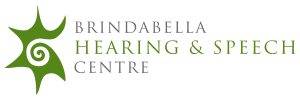

Our approach to Speech Pathology
Modern speech pathology is a rigorous, highly individualised process requiring the right mix of skills, experience, resources and a suitable environment.
On this page
Evidence-based Assessment & Therapy
Speech-language intervention consists of two distinct components:
- Assessment: a series of instructions, activities and observations designed to measure the individual's performance against objective criteria.
- Therapy: a series of instructions, activities and observations designed to reinforce strengths and overcome weaknesses identified during assessment.
Many approaches have been used over the ages to assist with speech and language problems, some more effective than others. Over time researchers and professionals have developed, measured and refined their techniques based on observed clinical outcomes. If there is a mantra we adhere to, it is that of selecting our assessments and therapy based on evidence that they will help to understand and overcome the symptoms and underlying conditions presented by a given individual.
Range of Assessments
Prior to commencement of therapy or treatment, an assessment is conducted to objectively determine where help is needed. The Speech Pathologist has a critical choice to make here, as there are dozens of assessments catering to specific age groups or circumstances. Assessment options represent one of the most important (and expensive) tools in a Speech Pathologist's toolkit. Different assessments cater to different conditions, age groups and ability levels.
Over the years Brindabella Hearing & Speech Centre has invested in a broad range of assessments to ensure the most appropriate assessment is available for use by our Speech Patologists. Not all speech pathology clinics can afford such choice. Where appropriate commercial assessments are unavailable, we have developed our own.
Here is a list of the assessments we administer regularly, in alphabetical order:
Assessment name:
Adult Language
Developed and/or published by:
Brindabella Hearing & Speech Centre
Summary:
Evaluates receptive language skills (auditory comprehension and reading comprehension) and expressive language skills (verbal expression and written expression).
Assessment name:
Bureau Auditory Comprehension Test (BACT)
Developed and/or published by:
Health Commission of New South Wales
Summary:
Evaluates auditory comprehension skills in children aged 2 through 7 years.
Assessment name:
Burt Single Word Reading Test (BSWRT)
Developed and/or published by:
The Australian Council for Educational Research (ACER)
Summary:
Evaluates single word reading skills.
Assessment name:
Adult Language
Developed and/or published by:
Brindabella Hearing & Speech Centre
Summary:
Evaluates receptive language skills (auditory comprehension and reading comprehension) and expressive language skills (verbal expression and written expression).
Assessment name:
Clinical Evaluation of Language Fundamentals (CELF)
Developed and/or published by:
Pearson Clinical and Talent Assessment Australia and New Zealand
Summary:
Evaluates language performance of children and adolescents aged 3 through 21 years.
Assessment name:
Cognitive-Linguistic
Developed and/or published by:
Brindabella Hearing & Speech Centre
Summary:
Evaluates cognitive-linguistic functioning.
Assessment name:
Comprehensive Assessment of Spoken Language (CASL)
Developed and/or published by:
Western Psychological Services
Summary:
Evaluates oral language processing and performance in children and adults aged 3 – 21 years.
Assessment name:
Diagnostic Evaluation of Articulation and Phonology (DEAP)
Developed and/or published by:
Pearson Clinical and Talent Assessment Australia and New Zealand
Summary:
Detects and differentiates between articulation problems, delayed phonology and consistent versus inconsistent phonological disorder.
Assessment name:
Fluency
Developed and/or published by:
Brindabella Hearing & Speech Centre
Summary:
Evaluates fluency in expressive language.
Assessment name:
Motor Speech
Developed and/or published by:
Brindabella Hearing & Speech Centre
Summary:
Evaluates motor speech performance.
Assessment name:
Preschool Language Scales (PLS)
Developed and/or published by:
Pearson Clinical and Talent Assessment Australia and New Zealand
Summary:
Evaluates receptive and expressive language skills in children from birth to 7 years; 11 months of age.
Assessment name:
Queensland University Inventory of Literacy (QUIL)
Developed and/or published by:
Department of Speech Pathology & Audiology, the University of Queensland
Summary:
Evaluates phonological awareness, which is the ability to attend to, identify and manipulate the sounds in spoken words.
Assessment name:
Renfrew Action Picture Test (RAPT)
Developed and/or published by:
The Australian Council for Educational Research (ACER)
Summary:
Evaluates expressive language in children aged 3-8 years.
Assessment name:
Rossetti Infant-Toddler Language Scale (RITLS)
Developed and/or published by:
Pro-ed, Inc
Summary:
A criterion referenced scale designed to assess the communication skills of children birth through 36 months of age.
Assessment name:
Social Responsiveness Scale (SRS)
Developed and/or published by:
Western Psychological Services
Summary:
A standardised scale (with DSM-5 Compatible Subscales) which covers various dimensions on interpersonal behaviour, communication and repetitive/stereotypic behaviours.
Assessment name:
South Australian Spelling Test (SAST)
Developed and/or published by:
The Australian Council for Educational Research (ACER)
Summary:
Standardised test of single, real word spelling skills for students aged 6 to 16 years.
Assessment name:
Sutherland Phonological Awareness Test (SPAT)
Developed and/or published by:
The Australian Council for Educational Research (ACER)
Summary:
Evaluates phonological awareness, which is the ability to attend to, identify and manipulate the sounds in spoken words.
Assessment name:
Swallowing
Developed and/or published by:
Brindabella Hearing & Speech Centre
Summary:
Evaluates oral (mouth) and pharyngeal (throat) stages of swallowing function in adults.
Assessment name:
Test of Written Spelling (TWS)
Developed and/or published by:
Pearson Clinical and Talent Assessment Australia and New Zealand
Summary:
Standardised test of single, real word spelling skills for students aged 6 to 18 years.
Assessment name:
Toddler Phonology Test (TPT)
Developed and/or published by:
Pearson Clinical and Talent Assessment Australia and New Zealand
Summary:
Evaluates phonological acquisition in young children and identifies risk for phonological disorder.
Assessment name:
Voice
Developed and/or published by:
Brindabella Hearing & Speech Centre
Summary:
Evaluates vocal performance of children and adults.
Assessment name:
Woodcock Reading Mastery Test (WRMT)
Developed and/or published by:
Pearson Clinical and Talent Assessment Australia and New Zealand
Summary:
Evaluates reading skills in children and adults.
Assessment name:
York Assessment of Reading Comprehension (YARC)
Developed and/or published by:
GL Assessment
Summary:
Evaluates reading and comprehension skills of children aged 5 to 18 years.
Structured Therapy
Therapy is customised and planned for each individual we treat. In many cases, the Speech Pathologist draws upon their training and experience to precisely tailor approaches for maximum efficacy.
In addition to custom tailored therapy, we sometimes use the following structured therapy programs:
- Seeing Stars Program for Reading Fluency & Spelling
- Sounds Write, a structured phonics reading and spelling approach
- Lidcombe Program for Stuttering
- The Camperdown Program for Stuttering
- Lee Silverman voice treatment (LSVT)

